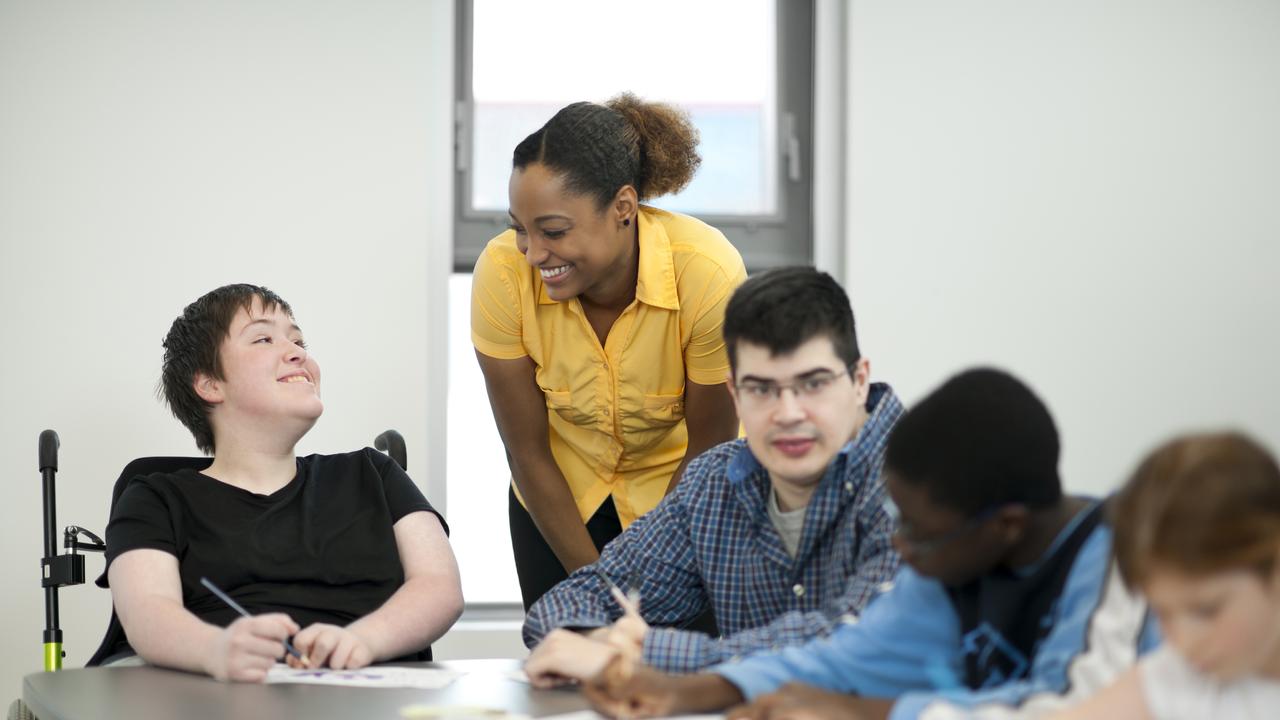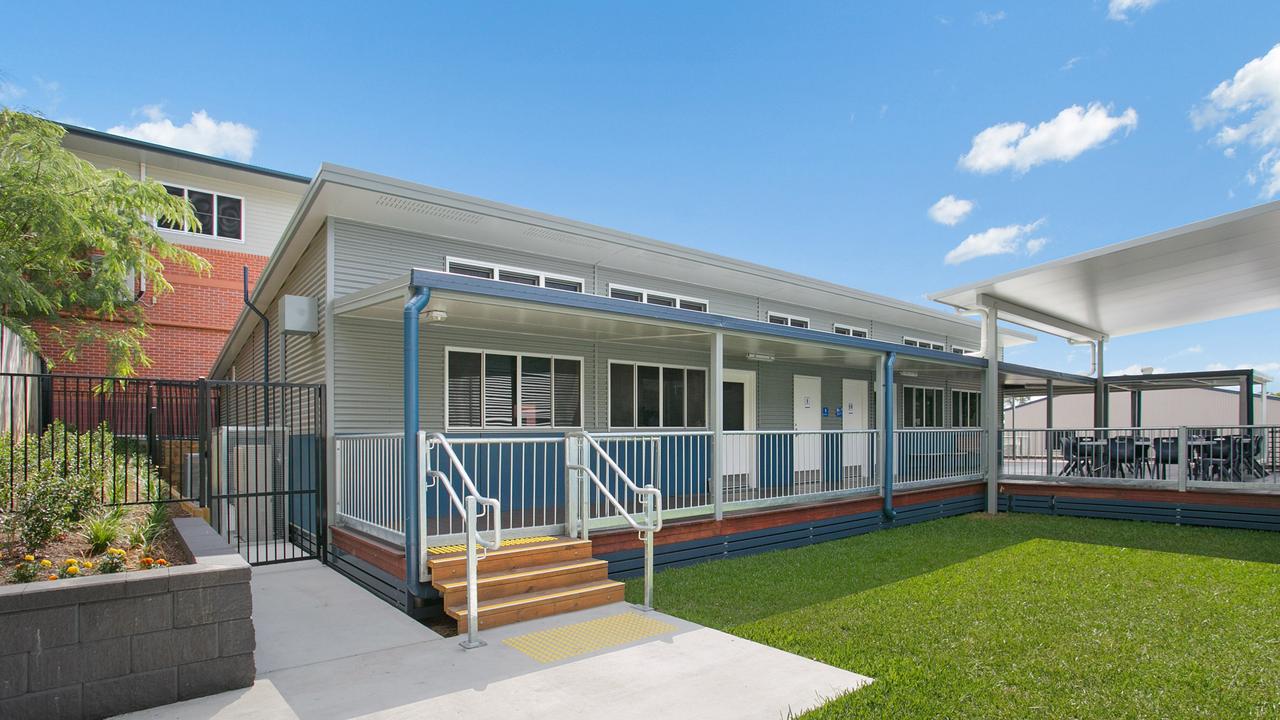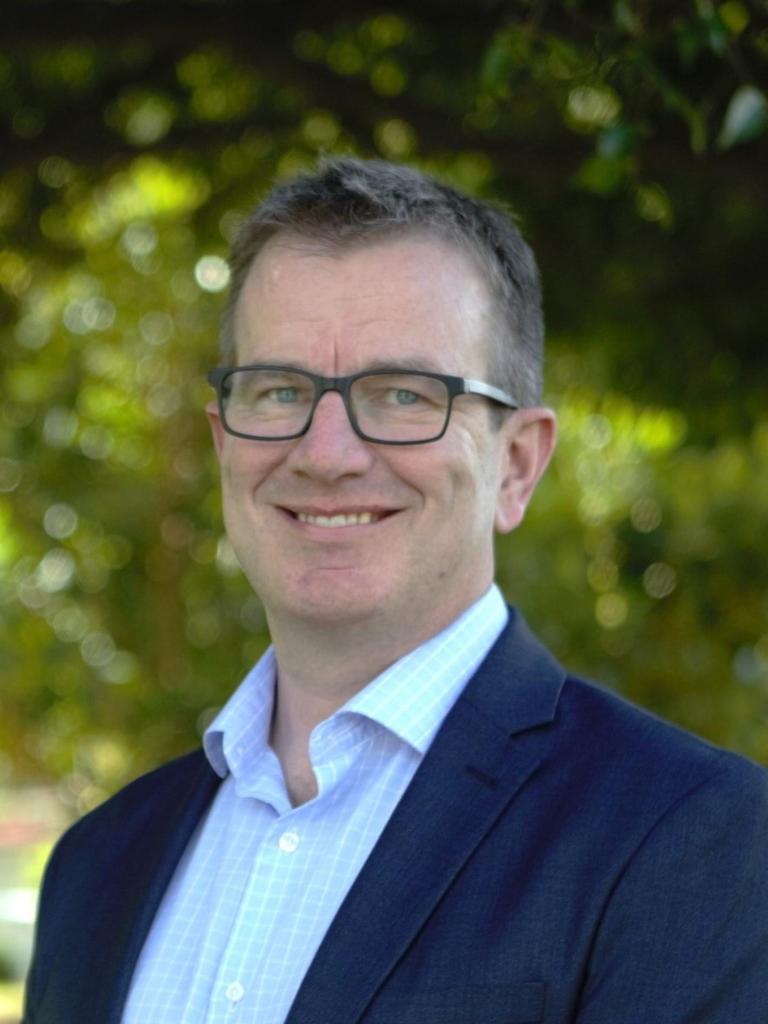‘Us against them’: Outrage over calls to phase out Qld special schools
Queensland school communities are divided over a new push to phase out special schools and put high-needs children into mainstream classes. VOTE IN POLL
Education
Don't miss out on the headlines from Education. Followed categories will be added to My News.
Queensland school communities fear phasing out special schools and putting high-needs children into mainstream classes would create a logistics nightmare and remove parental choice despite the backing from disability advocates.
A divided Disability Royal Commission last week recommended the phasing out of special education within 30 years and for no new special schools to be built from 2025, which sparked fierce debate.
Education Minister Grace Grace said the state government was “closely considering” the recommendations.
The state government has a new special school planned for the Springfield/Redbank area and has funded major expansions to newly opened special schools at Coomera and Palmview. It’s understood demand for Queensland special schools is high.
Australia Special Education Principals’ Association president Matthew Johnson said phasing out special schools would cost billions of dollars and take away the option for families.
Mr Johnson told News Corp that it was “ridiculous” to expect a special school student to succeed in a class of 30.
“The parents choose us, we don’t choose students,” he said.
“There’s a reason why our students aren’t in the mainstream system. They require the one-on-one (education) … not being in a class of 30.”
Queensland Teachers’ Union president Cresta Richardson said there would be many implications to consider for state and federal governments.

Ms Richardson said the union respected parental choice in relation to the best choice for their children.
“Our schools need to be properly supported to provide appropriate education for all students in our system,” Ms Richardson said.
“Needs-based resourcing includes sufficient staffing (both teaching and non-teaching, and necessary medical expertise) and appropriate technology, facilities and equipment. All such resources must be fully funded by the government.”
There are also concerns in school communities as to the logistic, economic and learning impacts the phasing out of special schools would have on mainstream classrooms.
Queensland teachers slammed the recommendations, according to posts on dedicated online forums.
“I’ve worked in special schools and I find it very difficult to see how catering for the high needs of those students can genuinely be catered for in a mainstream setting,” one teacher wrote.

“As the parent of a child with neurological and physical impairment it would have been a nightmare to have her at a mainstream school,” another wrote.
“As a special needs teacher, we already struggle with the high medical, behavioural, physical, therapeutic, communicative, hygienic and educational needs of our students within a small classroom setting, in a highly-flexible environment,” another posted.
“For this to be a reality you will (at least) need highly-trained teacher aides in every classroom to ensure the needs of all students are catered for,” wrote another.
The new president of the Queensland Association of Special Education Leaders Tracy Cronin praised the work done by the state’s special schools. However, she said it was too early to comment on the recommendations.
“Queensland’s special schools do an amazing job delivering curriculum through the use of highly specialised pedagogies that meet the unique learning needs of individual students,” Ms Cronin said.

Down Syndrome Australia Darryl Steff argued that by separating students with a disability in schools it sets them up for a lifetime of isolation.
Mr Steff’s daughter has Down syndrome and attends a mainstream school in Brisbane where he said she has fantastic teachers and is embraced by the school community.
“She is in Year 6 but most of her curriculum is around Year 2 or 3 and they work with her. It’s so heartening,” Mr Steff said.
“I get to see the impact it has on her, and her peers. It benefits the whole.”
Mr Steff said all the evidence showed inclusive education would set children up for employment after school and have them better prepared for the “real world”.
Other leading advocacy groups including the Queensland Advocacy for Inclusion and Inclusive Educators Australia backed the recommendations.
In a statement, QAI chief executive Matilda Alexander said segregated education created an “us against them” mentality that had to change.
Ms Grace said the state government invests about $1.5bn annually to support students with a disability in schools.
“The state government has a proud commitment to ensuring every child in every school is welcomed, included, and supported,” Ms Grace said.
“We have an extensive inclusive education policy, and have started the transition to a brand new resourcing model that will provide extra support to 40,000 additional students.”
The state government’s inclusive education policy commits to enabling and welcoming students of all abilities to attend their local state school and fully participate in learning.
All Queensland state schools are also required to make reasonable adjustments for students with a disability to ensure they are able to access and participate in education on the same basis as their peers.
Want to get in touch? Send an email to matthew.holdsworth@news.com.au






